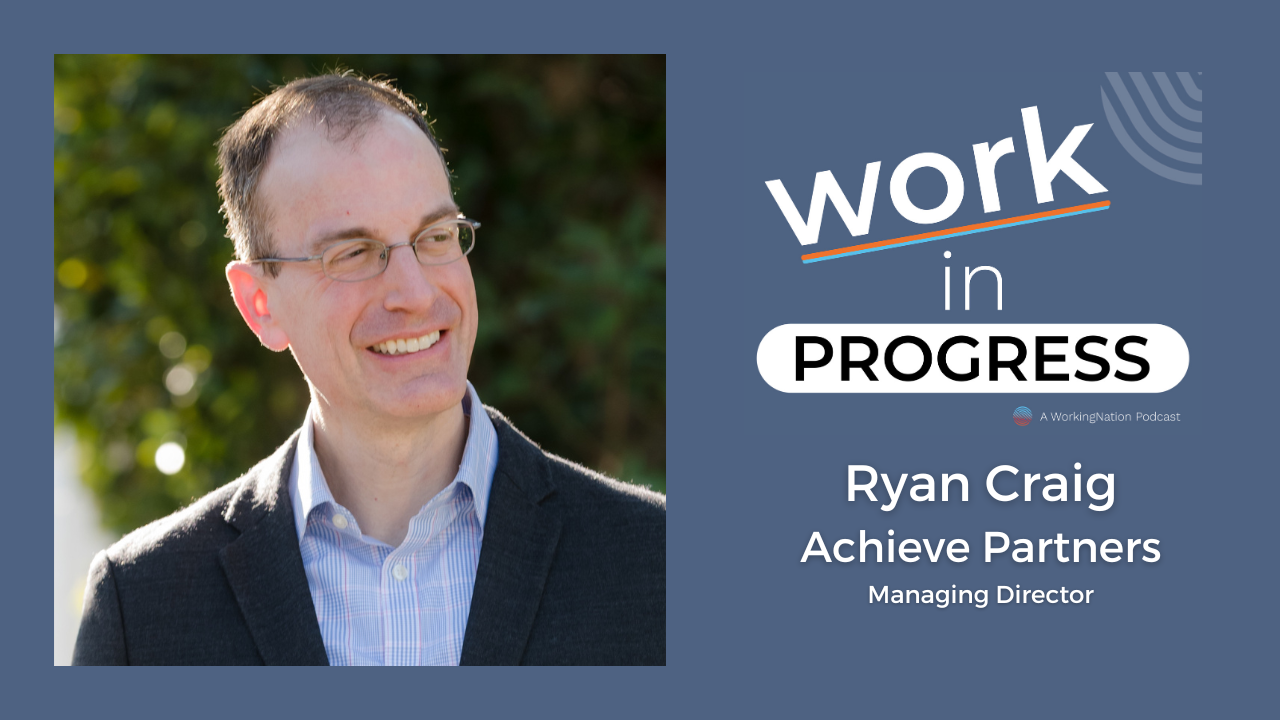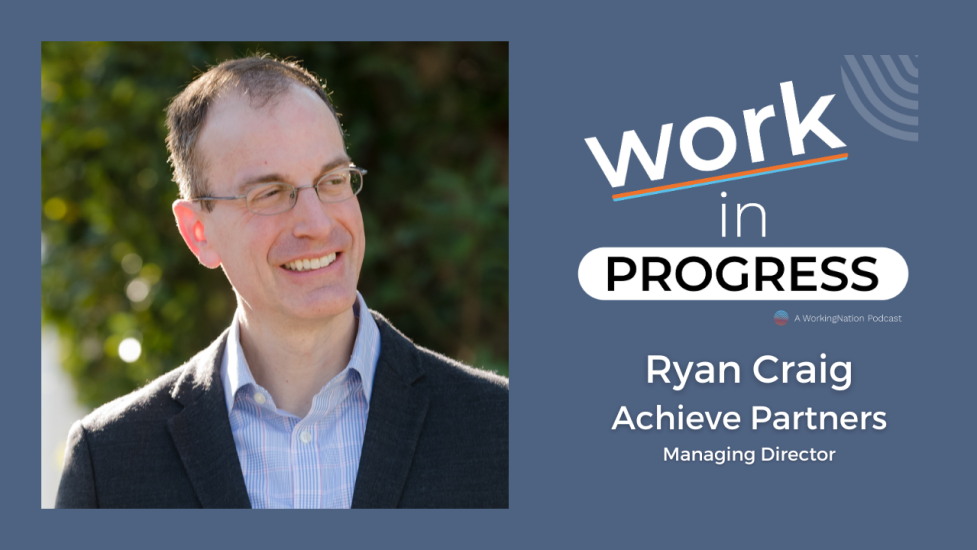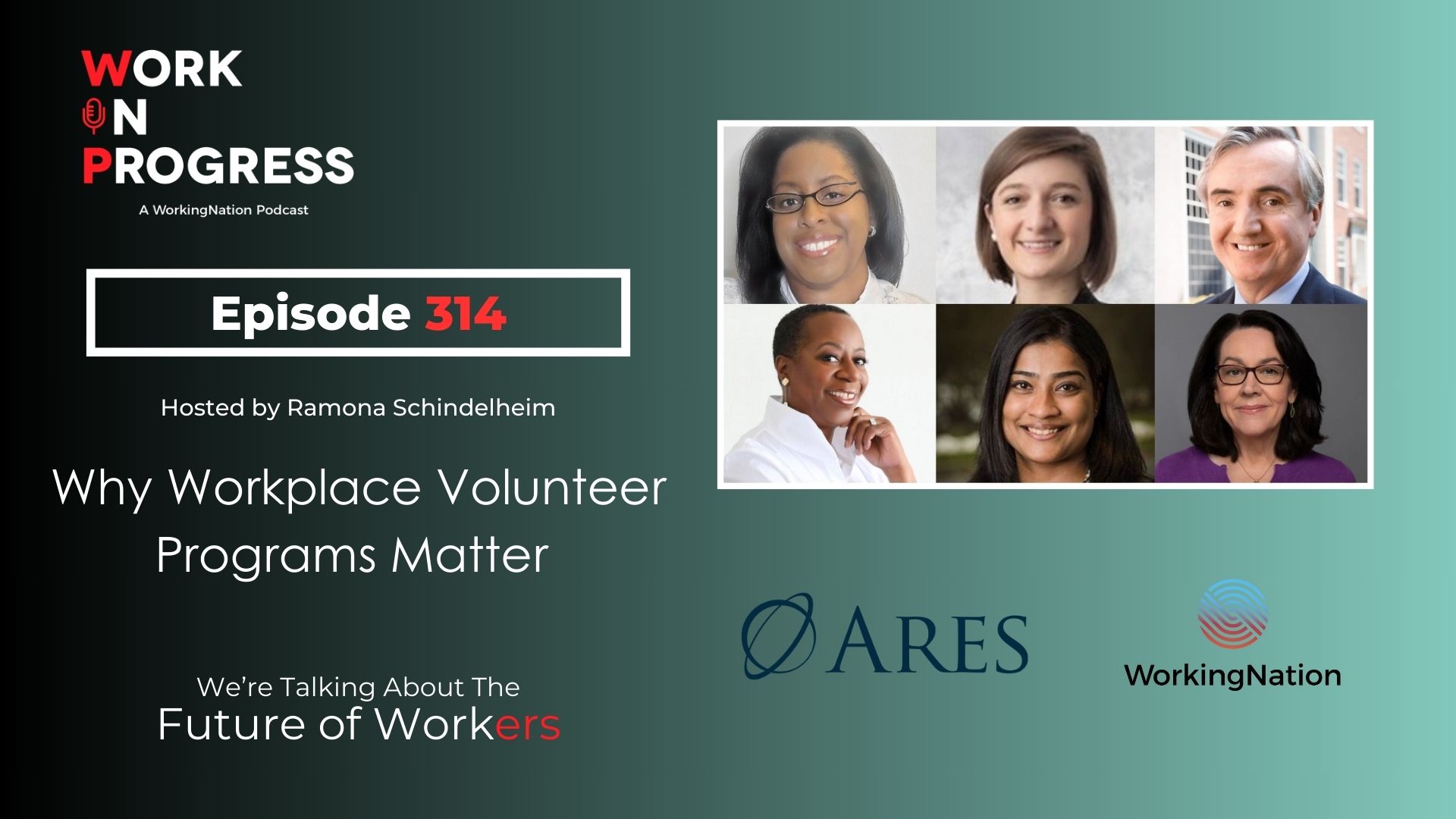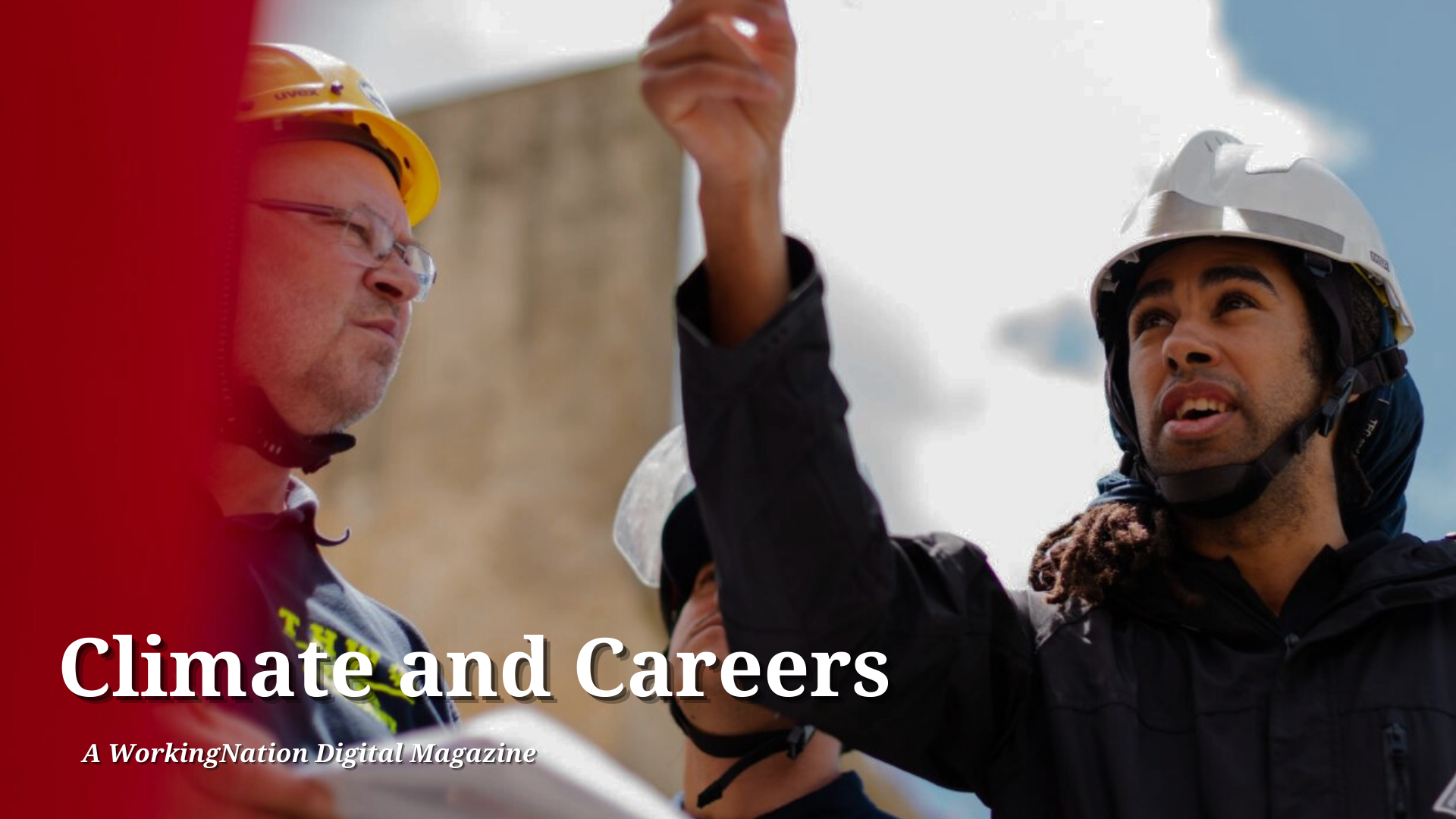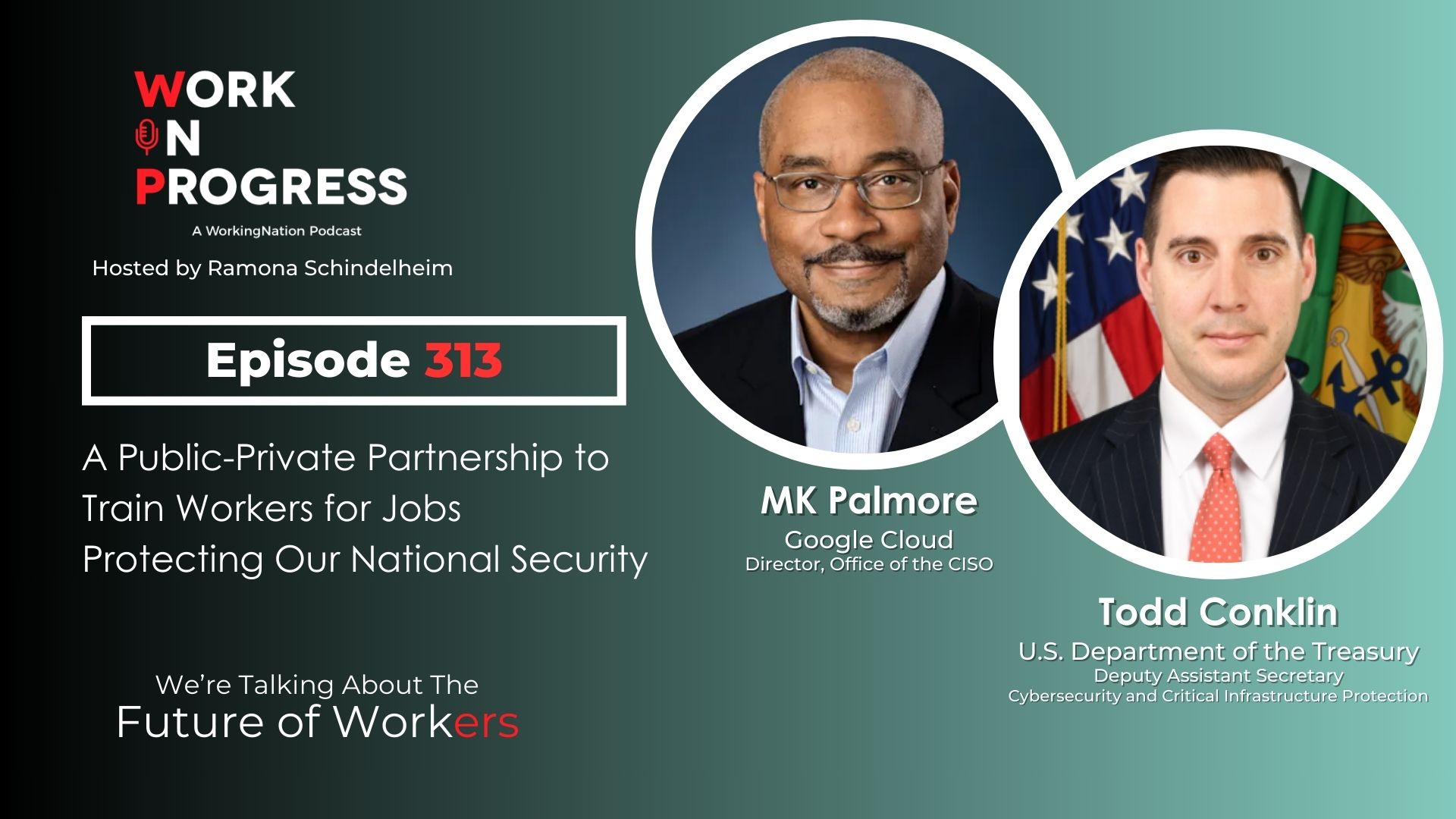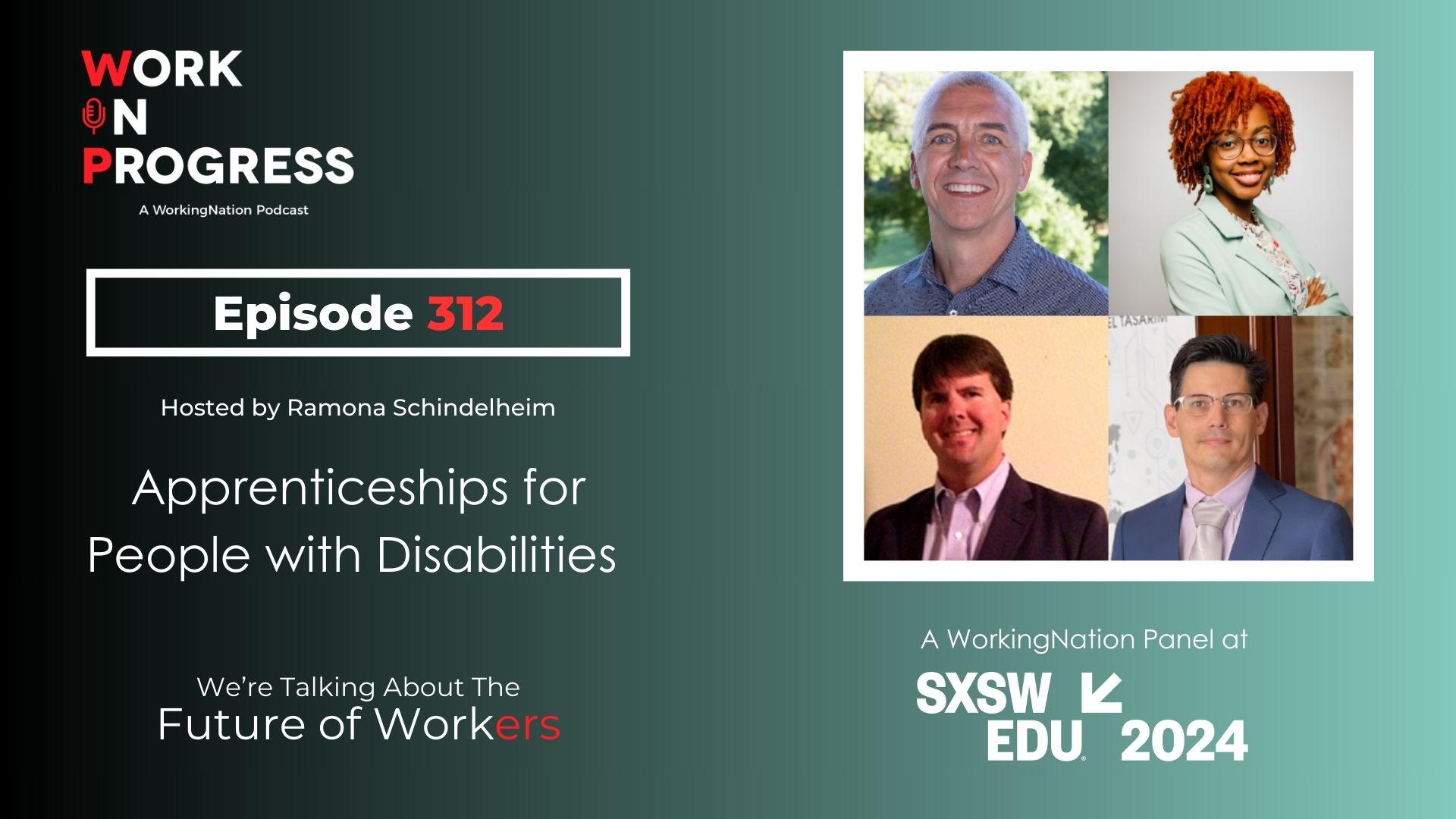Podcast: Play in new window | Download | Embed
Subscribe: Apple Podcasts | Google Podcasts | Spotify | Pandora | Youtube Music | RSS
In this episode of the Work in Progress podcast, I am joined by Ryan Craig, managing director of Achieve Partners, to discuss the role apprenticeship can and should play in developing a skilled workforce.
A four-year college education has played a vital role in the economic growth and prosperity for many people in this country, but it has not been the silver bullet for everyone for a variety of reasons, with time and money being two of them.
So, what is the alternative for employers desperate for talent and for job seekers who want to become part of that workforce of skilled and experienced talent?
In his new book Apprentice Nation: How the Earn and Learn Alternative to Higher Education Will Create a Stronger and Fairer America, Craig makes a very strong case that apprenticeship is one answer. But first, we talk about the role that college has played in career development.
“Colleges do as good a job as they’ve ever done at equipping students with the cognitive skills, critical thinking skills, problem solving skills, and communication skills,” says Craig. “It’s not college’s fault, but the economy has changed. Digital transformation has fundamentally changed the skills that employers are seeking in employees and specifically for entry-level employees.”
He argues that colleges are “closed off to the real economy in a number of ways that make it very challenging to address the shortcomings that we’re seeing relative to equipping graduates with the skills that employers are seeking.”
How do we address those shortcoming? Craig says the learn-and-earn model is a powerful weapon, one that is often mistakenly looked at as just a pathway for people wanting to enter the skilled trades.
“Apprenticeship is unlike any other training or educational program or pathway. It’s a job first and foremost. When I first began working in this area, maybe a decade ago, I had the same bias, ‘Oh, that’s just for plumbers and electricians and roofers.’ What’s exciting about it is that it puts employment and the job first, which means that it’s truly a level playing field.”
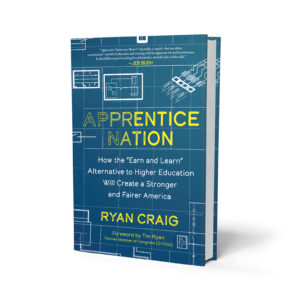
According to Craig, apprenticeships provide a level playing field for job seekers, as they do not require past employment on a resume or student loan debt.
He uses the need for cybersecurity professionals as an example of where apprenticeships could be extremely valuable. The federal government estimates that there are more than 660,000 unfilled jobs in the U.S. alone and definitely not enough people with the experience to fill them.
“How are we going to close that experience gap? It has to be through something like an apprenticeship program where you’re coming in, you’re learning, you’re earning, you’re gaining experience, and then that employer then will have the opportunity to bring you on after you’ve had the experience of that apprenticeship program.”
He sees it as a win-win for employer and employee.
“You don’t need to worry about whether the job seeker or the prospective student can afford to take on a student loan debt or is willing to take on risk relative to ultimate employment. Those problems are solved because it is a job. It’s a full-time job that pays a living wage from the get-go.”
Craig also discusses the need for a stronger apprenticeship infrastructure in the United States and the role of intermediaries in setting up and running apprenticeship programs. He concludes by suggesting that colleges and universities will need to change as more students opt for apprenticeships, and that a robust apprenticeship system can lead to greater socioeconomic mobility and a stronger economy.
“I think that this is all about building the apprenticeship infrastructure we need in order to provide options for millions of career launchers through apprenticeship so that those students will have a real choice. And colleges and universities that aren’t addressing student needs will be forced to change because the students that they’re expecting won’t show up on their doorstep and won’t be paying tuition anymore.”
You can hear the full podcast here, or download it wherever you get your podcasts.
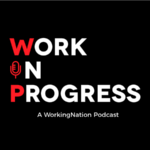
Episode 292: Ryan Craig, managing director, Achieve Partners
Host & Executive Producer: Ramona Schindelheim, Editor-in-Chief, WorkingNation
Producer: Larry Buhl
Executive Producers: Joan Lynch and Melissa Panzer
Theme Music: Composed by Lee Rosevere and licensed under CC by 4
Download the transcript for this podcast here.
You can check out all the other podcasts at this link: Work in Progress podcasts

